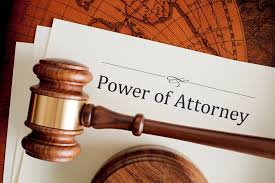Everything You Need to Know About Power of Attorney
As a buyer or seller of real estate, chances are that you may be too busy to attend to property transactions. Also, there are chances that you may be away for some time, perhaps for a business trip or vacation. Oftentimes, in situations like this, you are left with no choice but to worry about how you can manage your property effectively.
Well, look no further, as this article offers you the solution that you have been seeking. This solution is called the Power of Attorney for property.
Whether you’re a busy professional, an expatriate, or simply someone who wants to ensure their property is well taken care of, this article shares valuable information on everything you need to know about Power of Attorney for property.
What is a Power of Attorney?
A Power of Attorney (POA) is a legal document that allows one person (the Principal) to appoint another person (the Attorney-in-Fact or Donee) to act on their behalf in specific matters, and that includes the management of property. This person, though called an attorney, is not necessarily a lawyer and can be your spouse or close relative.
This arrangement can be incredibly useful when the principal is unable to oversee their affairs due to travel, health issues, or other commitments.
Simply put, it is a powerful legal tool that can make your real estate transactions and management easy whenever you’re not available to do so in person.
READ ALSO: Essential Documents Required for Mortgage Application in Nigeria
Why Use a Power of Attorney for Property?
Using a power of attorney for property management offers several advantages. These advantages are:
1. Convenience: It allows someone you trust to handle your property transactions. Such transactions could be selling, leasing, or managing rental properties.
2. Flexibility: You can grant broad authority or limit it to specific tasks, depending on your needs.
3. Peace of Mind: Knowing that a reliable person is managing your affairs can alleviate stress and ensure everything runs smoothly.
Types of Power of Attorney
In Nigeria, there are several types of powers of attorney you should consider. They are:
1. General Power of Attorney
This grants broad authority to the Donee to act on behalf of the Principal in various matters, including property management.
2. Specific or Limited Power of Attorney
This restricts the donee’s authority to specific tasks, such as selling a particular property.
3. Durable Power of Attorney
This remains valid even if the principal becomes incapacitated due to ill health or certain unforeseen and unpleasant circumstances. It ensures continuity in management.
4. Non-Durable Power of Attorney
This is valid for a limited time or specific transaction and ceases once the task is completed.
The Role of the Principal and the Attorney-in-Fact
As the Principal, it’s crucial to choose someone trustworthy as your attorney-in-fact. This person will have significant responsibility and must act in your best interests. They should keep accurate records of all transactions made on your behalf and adhere strictly to the scope of authority granted in the Power of Attorney.
Legal Considerations for Choosing a Power of Attorney
To ensure that your power of attorney is legally binding in Nigeria, it must meet certain requirements. These requirements are:
1. Proper Execution
The document must be signed by the principal and witnessed appropriately.
2. Registration
For property-related transactions, registering the power of attorney with the relevant land registry adds legal weight and can be crucial in disputes.
3. Compliance with Local Laws
Ensure that your power of attorney aligns with applicable property laws in Nigeria.
Best Practices for Using Power of Attorney
To make the most out of your power of attorney for property, ensure you do the following:
- Verify Authenticity: Always check the authenticity of a POA before entering into any agreements.
- Consult a Lawyer: Engaging a legal professional can help draft a robust POA that meets all legal requirements.
- Monitor Transactions: Stay informed about the activities conducted by your attorney-in-fact to prevent any misuse.
Final Thoughts
The power of attorney for property is an invaluable tool that helps you to manage your real estate effectively, even when you’re not physically present.
If you’re looking to sell your home or simply need someone to oversee your rental properties, then you need a reliable power of attorney. He or she must ensure that your interests are protected and your investments are well managed.

